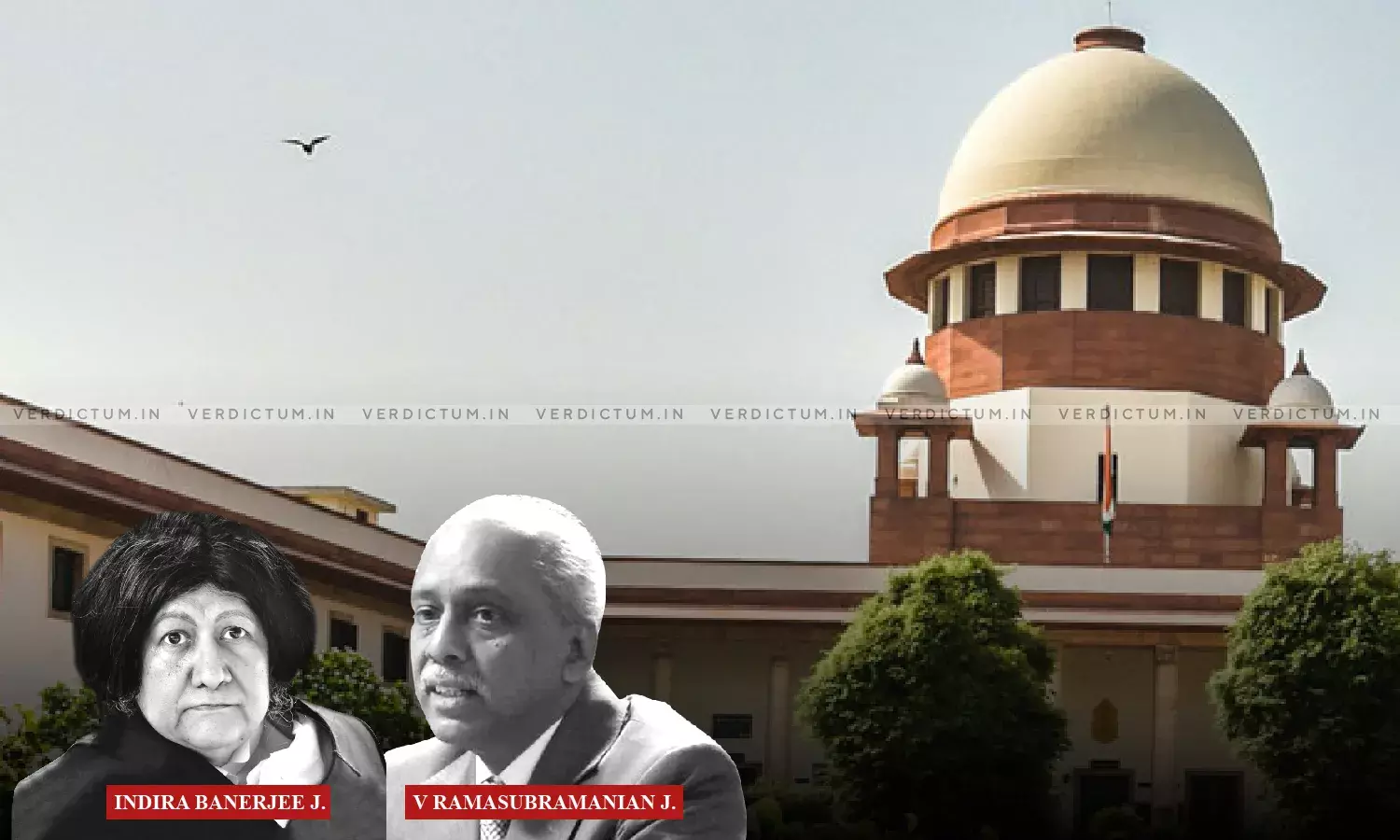State Reorganization Act Cannot Take Away Fundamental Rights Of Citizens To Reside And Settle Anywhere In India - SC

The Supreme Court has observed that the Andhra Pradesh State Reorganization Act 2014 cannot take away the fundamental right of a citizen to settle and reside anywhere in the country.
The Bench of Justice Indira Banerjee and Justice V. Ramasubramanian has held -
"The Andhra Pradesh State Reorganisation Act, 2014 or any other guidelines framed thereunder, including the guidelines circulated on 30.10.2014 cannot take away from citizens, the right to reside and settle in any part of the country."
The Court also observed that there is only one domicile i.e., the domicile of the country and there is no domicile for the State while placing reliance on the judgment Dr. Pradeep Jain v. Union of India.
"It is true that when a State is divided and the employees and officers of the State Government have to be allotted to the two states, such allocation has to be done on the basis of the Rules and Regulations and by guidelines. However, such rules, regulations and guidelines have to be construed harmoniously with the fundamental rights guaranteed under the Constitution of India.". the Bench held.
In this case, Respondent No.1, held the State Cadre post of Joint Director-Class A in the Animal Husbandry Department of the undivided State of Andhra Pradesh.
The Central Government notified the Andhra Pradesh Reorganisation Act, 2014 bifurcating the State of Andhra Pradesh into two States- the new State of Telangana and the residue state of Andhra Pradesh.
The Respondent opted for allocation to the State of Telangana. At the material point of time, the Respondent was working as Project Director, Hyderabad on deputation. However, the Respondent was allotted to the State of Andhra Pradesh tentatively.
The Respondent made a representation that he be considered a local candidate of the State of Telangana, however, the representation was not considered.
The Ministry of Personnel, PG, and Pensions of the Department of Personnel and Training, Government of India, allotted the Respondent to the State of Andhra Pradesh.
Aggrieved, the Respondent approached High Court. The High Court set aside the order of the Ministry of Personnel, PG, and Pensions and directed the Ministry of Personnel, PG, and Pensions to allocate the Respondent to the State of Telangana.
Aggrieved, the State approached Supreme Court.
Additional Solicitor General Aman Lekhi appeared for the State whereas Advocate Mohana appeared for Respondent no.1.
The Court observed that at the time of bifurcation of the State of Andhra Pradesh, Respondent no.1 was posted in an area that falls with Telangana.
The Court further observed that his position was 4th in seniority in the composite State of Andhra Pradesh. The 3 people, senior to him, were all local candidates of Andhra Pradesh, who had opted for Andhra Pradesh.
The Court pointed out that Respondent No.1 was senior most of the employees who opted for Telangana.
The Court expressed "It is true that the respondent may have been born in an area which now forms part of Andhra Pradesh and may have received a substantial part of his education in areas which now form part of the State of Andhra Pradesh. However, admittedly, he cleared all Board and University examinations from areas within the State of Telangana. At the time of bifurcation, he was posted in Hyderabad, which is now part of Telangana."
The Court also held, "It is not in dispute that the respondent has his domicile in the Territory of India and was born in the territory of India. Admittedly, he is a citizen of this country. As a citizen of India, the respondent has a fundamental right under Article 19(1)(e) to reside and settle in any part of the territory of India."
The Bench also noted that all statutes and all rules, regulations, and byelaws framed by the Government, which constitute law have to be construed harmoniously with the fundamental rights guaranteed under PartIII of the Constitution of India.
The Court thus held that the High Court had rightly concluded that the Respondent was a local candidate of Telangana and was entitled to allocation as per his seniority. Furthermore, the Court also noted that, admittedly, the spouse of the Respondent was a local candidate of Telangana.
Cause Title- The State of Telangana & Anr. v B. Subba Rayudu and Others
Click here to read/download the Judgment

